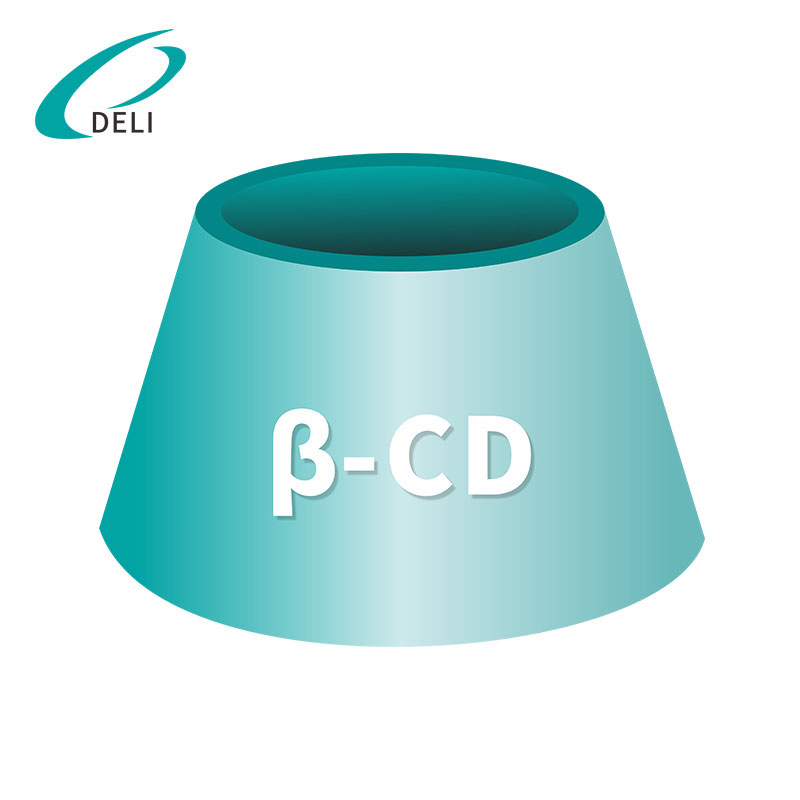Key Points about Betadex Pharmaceutical Grade
2024-07-11
Betadex, also known as beta-cyclodextrin, is a cyclic oligosaccharide widely used in the pharmaceutical industry due to its unique ability to form inclusion complexes with various molecules. This property enhances the solubility, stability, and bioavailability of many drugs. Here are the key points about Betadex pharmaceutical grade:
Chemical and Physical Properties
1. Structure
- Composed of seven D-glucopyranoside units linked by α-1,4-glycosidic bonds.
- Has a truncated cone shape with a hydrophobic cavity and a hydrophilic exterior.
2. Solubility
- Soluble in water, forming clear solutions.
- Limited solubility in organic solvents.
3. Stability
- Chemically stable in a wide pH range (3-12).
- Thermal stability up to around 200°C.
Pharmaceutical Applications
1. Drug Solubilization
- Forms inclusion complexes with poorly water-soluble drugs, enhancing their solubility and dissolution rate.
2. Stabilization
- Protects active pharmaceutical ingredients (APIs) from degradation caused by light, heat, oxidation, and hydrolysis.
3. Bioavailability Enhancement
- Improves the bioavailability of drugs by enhancing their solubility and stability.
4. Controlled Release
- Can be used in formulations to achieve controlled or sustained release of drugs.
5. Taste Masking
- Masks the unpleasant taste of certain drugs, improving patient compliance.
Mechanism of Action
- Inclusion Complex Formation
- Betadex encapsulates the drug molecule within its hydrophobic cavity, shielding it from the external environment.
- This interaction is typically reversible, allowing the drug to be released under specific conditions (e.g., in the gastrointestinal tract).
Regulatory Status
1. Generally Recognized as Safe (GRAS)
- Approved by the FDA for use in food and pharmaceutical applications.
- Listed in pharmacopeias such as the USP and EP.
2. Toxicology
- Considered non-toxic and non-irritant at recommended usage levels.
- Extensive safety data supports its use in pharmaceutical formulations.
Formulation Considerations
1. Complexation Efficiency
- Depends on the physicochemical properties of the drug (e.g., molecular size, hydrophobicity).
- Optimal molar ratios and complexation conditions (e.g., temperature, pH) should be determined experimentally.
2. Manufacturing Techniques
- Methods for preparing Betadex-drug complexes include kneading, co-precipitation, spray drying, and freeze-drying.
- Choice of method affects the efficiency and stability of the inclusion complex.
3. Compatibility
- Generally compatible with a wide range of excipients used in pharmaceutical formulations.
- Pre-formulation studies are recommended to assess any potential interactions.
Examples of Applications
1. Oral Drug Delivery
- Enhances the oral bioavailability of poorly soluble drugs like itraconazole and meloxicam.
- Used in the formulation of tablets, capsules, and oral suspensions.
2. Topical and Transdermal Delivery
- Improves the solubility and stability of drugs in topical creams, gels, and transdermal patches.
- Used in formulations containing drugs like dexamethasone and hydrocortisone.
3. Parenteral Formulations
- Used to solubilize drugs for injectable formulations.
- Examples include the use of Betadex to solubilize dexamethasone for intravenous administration.
4. Nasal and Pulmonary Delivery
- Enhances the solubility and stability of drugs in nasal sprays and inhalation formulations.
- Used in the formulation of drugs like budesonide and ciprofloxacin.
Advantages
1. Enhanced Solubility and Stability
- Significant improvements in the solubility and stability of many drugs.
2. Safety
- Well-established safety profile with regulatory approvals for pharmaceutical use.
3. Versatility
- Applicable in various dosage forms, including oral, topical, parenteral, and inhalation.
Disadvantages
1. Cost
- Betadex can be relatively expensive compared to other excipients.
2. Complex Formulation Development
- Requires careful optimization of formulation conditions to achieve efficient complexation.
3. Potential for Drug Interaction
- Possible interactions with other formulation components or APIs, necessitating thorough compatibility testing.
Key Suppliers
1. Roquette
- Offers a range of pharmaceutical-grade cyclodextrins, including Betadex.
2. Wacker Chemie AG
- Provides high-quality Betadex and other cyclodextrins for pharmaceutical applications.
3. Ashland
- Supplies pharmaceutical-grade cyclodextrins, including Betadex, with comprehensive technical support.
Betadex pharmaceutical grade is a versatile and valuable excipient for enhancing the solubility, stability, and bioavailability of drugs, making it an important tool in the development of modern pharmaceutical formulations.



